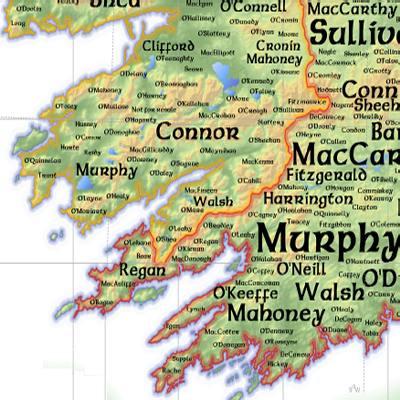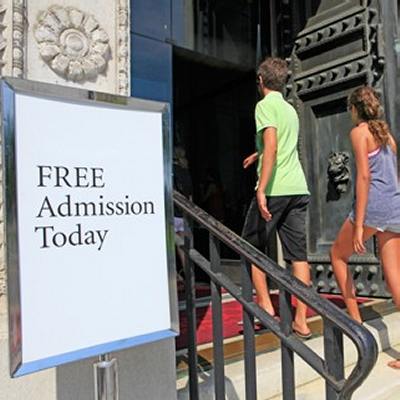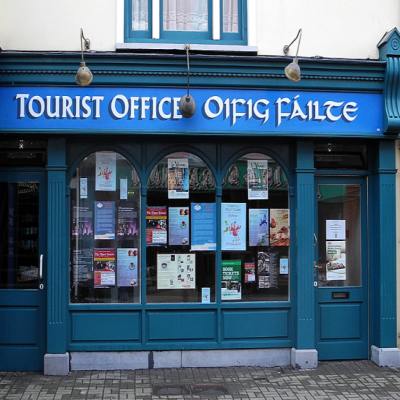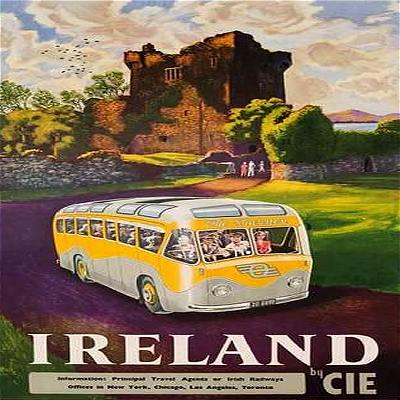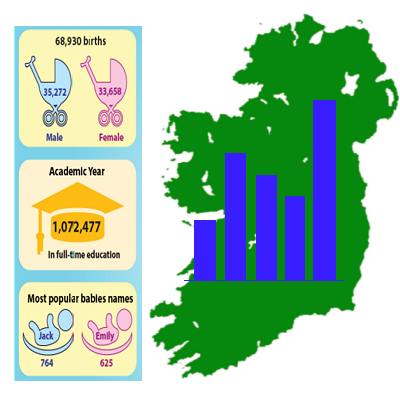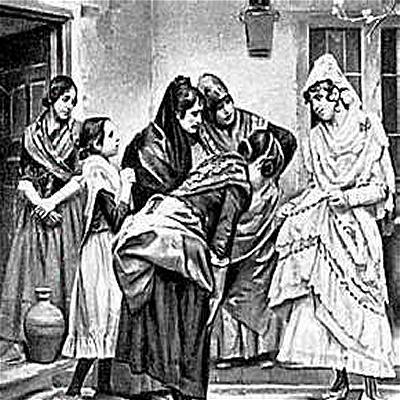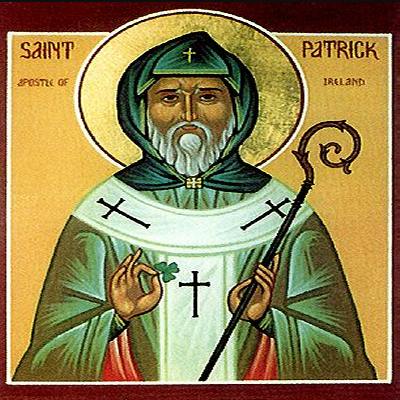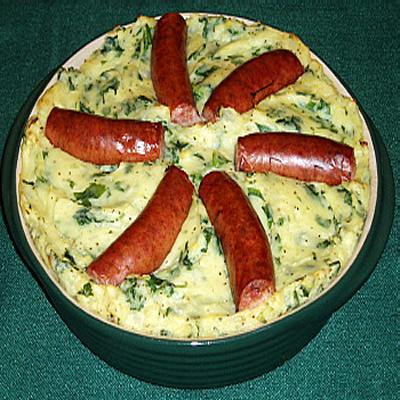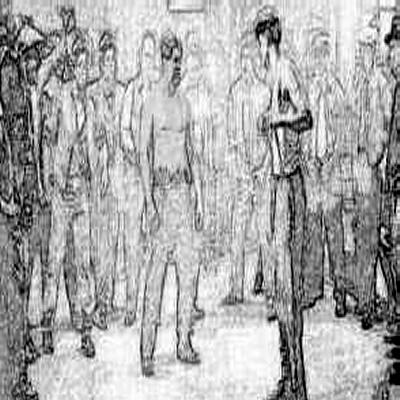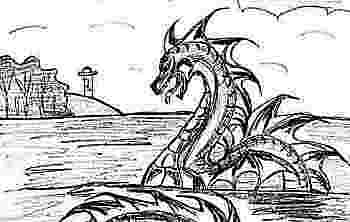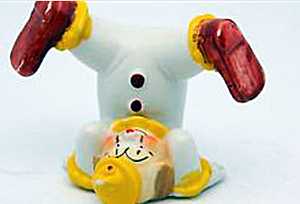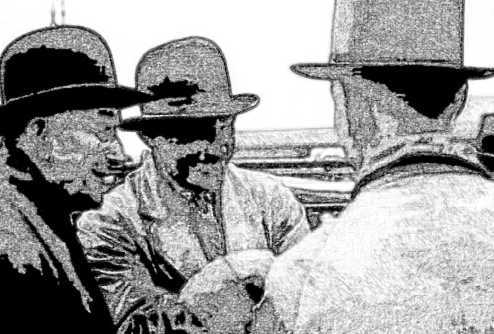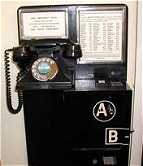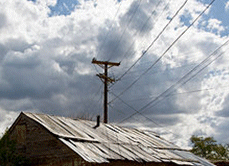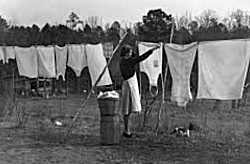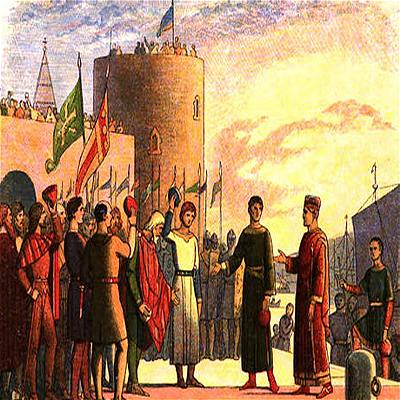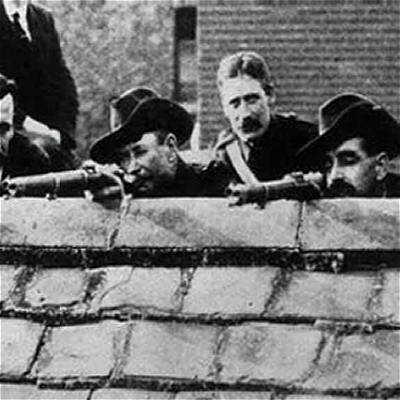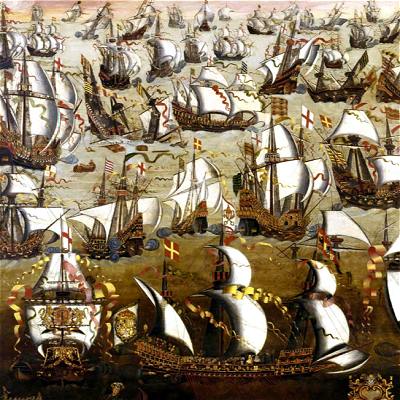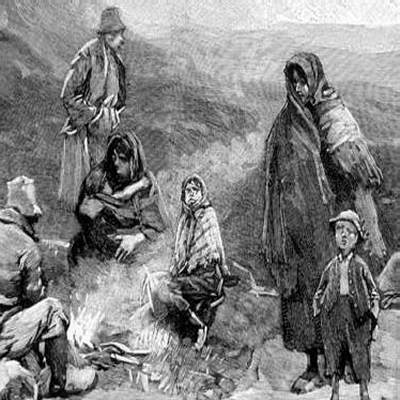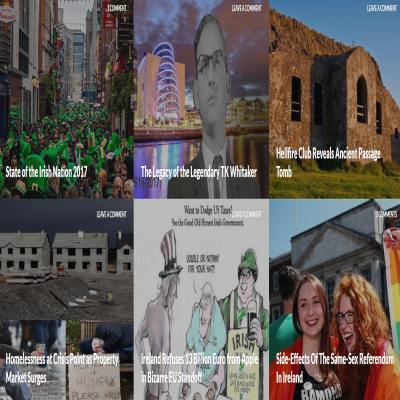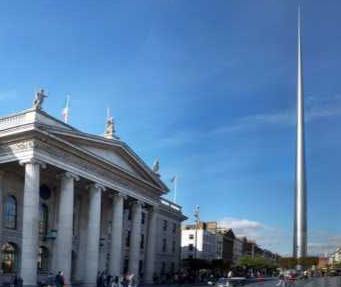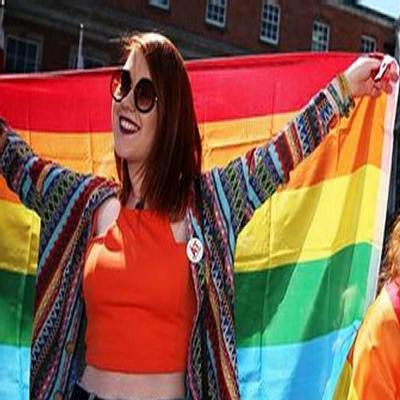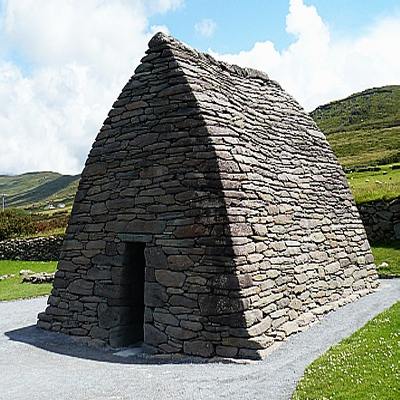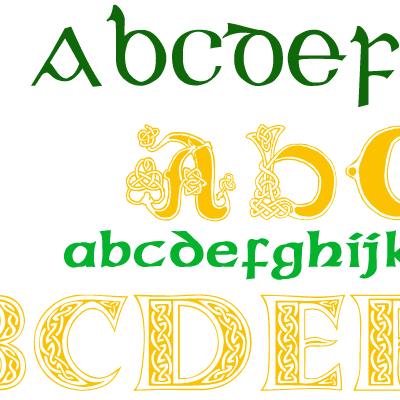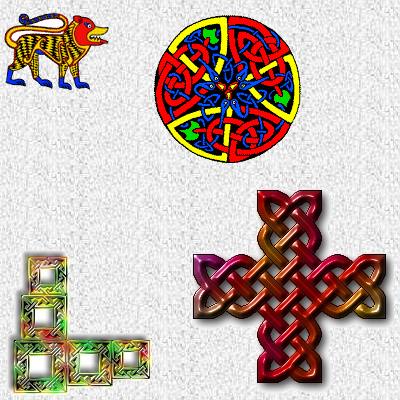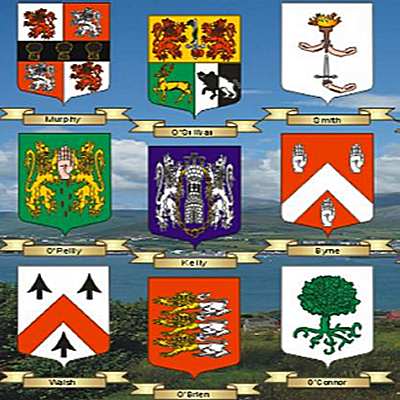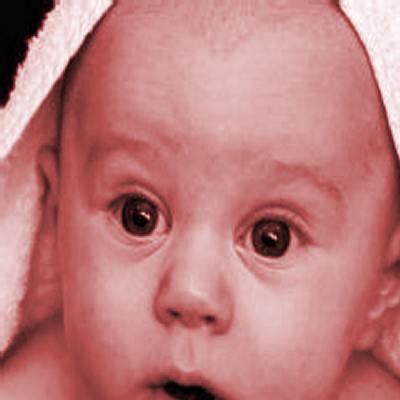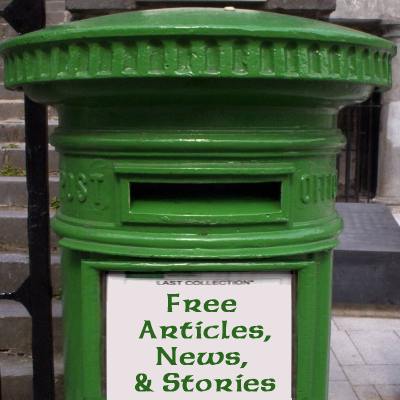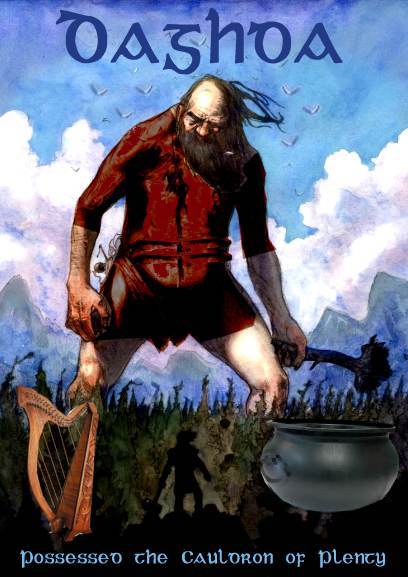
'He was a beautiful God of the heathens, for the Tuatha Dé Danann worshipped him - for he was an earth-God to them because of the greatness of his magical power.'
Daghda was a mystical, supernatural being with magical powers, and his strength derived from his knowledge of the hidden, which in folklore was the highest kind of wisdom. He possessed three particular implements of magical power.
The first was the large bronze cauldron which was so enchanted that no matter how many people sat down to eat around it, they would all be fed. The second was the mighty club the Daghda carried with him. Its enormous size meant that it had to be transported on wheels, and it took ten men to lift it. One end of the club killed the living with one blow, while the other end could revive the dead.
The Daghda also had a magical living harp, the Uaithne, called the Four-Angled Music, decorated in gold and jewels, on which he could play music to inspire any mood. It was his playing on this harp that made the seasons arrive in their proper order. This mystical instrument also played three types of music, the music of sorrow, the music of joy and the music of dreaming.
Stories of the Daghda are both plentiful and legendary! One such tale recounts how the Dagda had an affair with Boand, the wife of Elcmar. In order to hide their affair, the Daghda made the sun stand still for nine months and therefore their son, Aengus, was conceived and born in the same single day.
It was this same son Aengus who was to trick the Daghda out of his own home at Brú na Bóinne (Newgrange). Aengus had been away searching for a love he encountered in his dreams but returned to find that the lands of Daghda had been divided by his father among his children, leaving none for him. Needless to say Aengus took exception to this and hatched a plan to regain his birthright.
Aengus asked his father if he could be allowed to live at Bru for 'lá agus oiche', meaning 'day and night'. Daghda took it that his son intended to remain for a single day and a single night but such was the manner in which Aengus phrased his request, the request that was granted by the Daghda, that the 'day and night' represented the coninuous cycle of time, day after night, and thus Aengus took possession of Brú na Bóinne for all time.
The tale is recalled in 'Gods and Fighting Men', by Lady Gregory:
But however great a house the Dagda had,
Angus got it away from him in the end,
through the help of Manannan, son of Lir.
For Manannan bade him to ask his father for it for the length of a day and a night,
and that he by his art would take away his power of refusing.
So Angus asked for the Brugh, and his father gave it to him for a day and a night.
But when he asked it back again, it is what Angus said,
that it had been given to him for ever,
for the whole of life and time is made up of a day and a night,
one following after the other.
Perhaps it is fitting that the Daghda met his end by serving the Tuatha Dé Danann whom he commanded for eighty years. The Tuatha Dé Danann fought the Fomorions at 'The Battle of Magh Tuireadh' and it proved to be a crucial event. The Daghda employed all of his magical instruments in the battle and even made sure that the war Goddess, Morrigan, would be on their side by seducing her.
When Morrigan had earlier first seen the Daghda approaching, she stood with one foot on either side of a river to try and make sure he couldn't get at her, but she ended up being so pleased with his skills as a lover that she gave her favour to his side in the battle!
The Daghda then approached the Fomorians in an effort to delay them, seeking a truce. The Fomorians mocked him, filling a cauldron with porridge, gallons of milk, meat and fat and even pigs and goats. The mighty meal was boiled with the Daghda instructed to eat the volume entirety or else face death.
The Daghda was not to be outdone! He scooped up huge portions of the meal with his giant ladle, eating and eating to the amazement of the onlookers, finally finishing his task before collapsing into a deep sleep, with his huge bloated stomach as high as a tree!
Despite being victorious at the Battle of Magh Tuireadh, the Daghda succumbed to a wound inflicted by Cethlenn, the wife of Balor of the Fomorians.
The influence of the Daghda through the genealogies of Irish mythology is enormous. Apart from Aengus the Daghda was also the father of Bobh Dearg (grandfather of the Children of Lir), Cermait, Midir, Aine, and Brigid - marvelous and important characters all!
He is remembered as perhaps the most important of the Gaelic Gods with his influence reverberating through the mythological annals that were to follow.

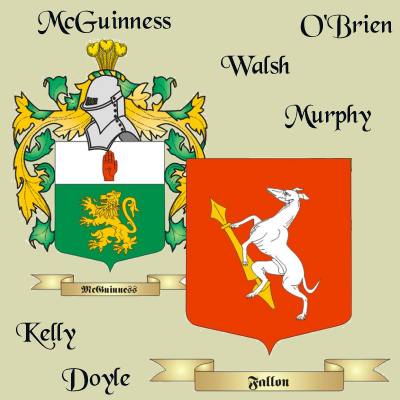 Your Family Crest
Your Family Crest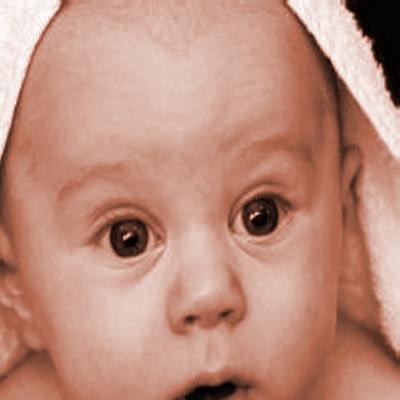
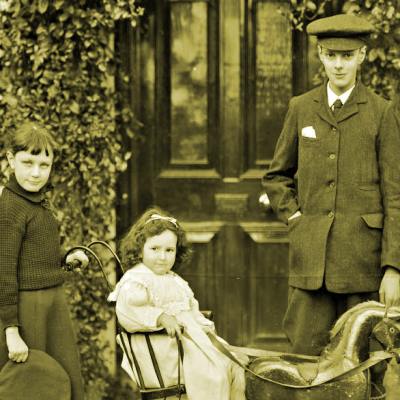 Irish Roots Search
Irish Roots Search